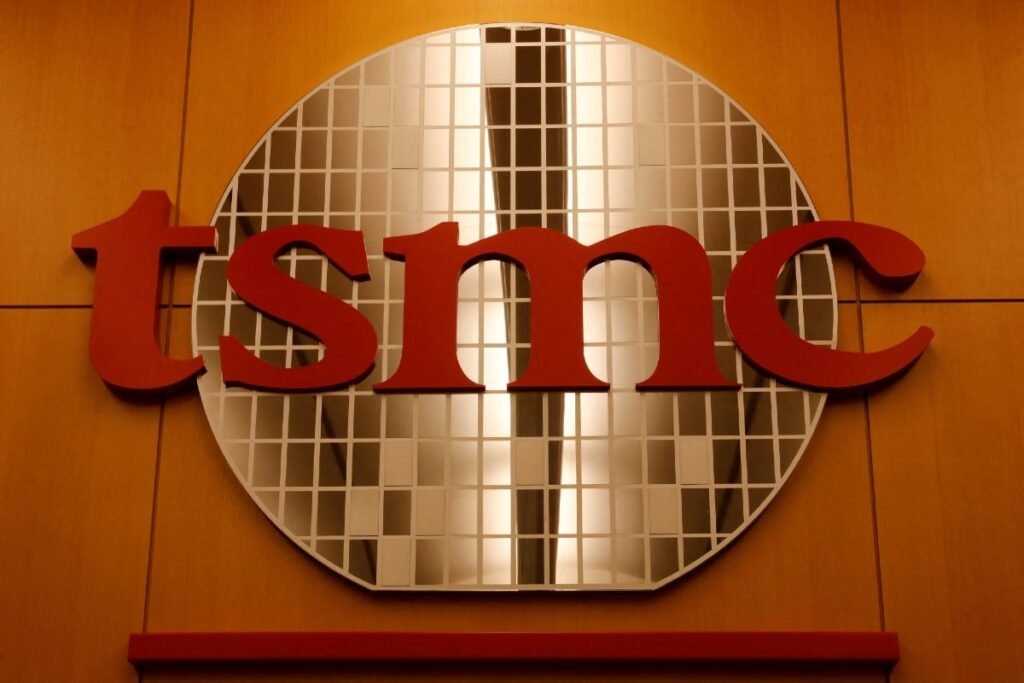The global semiconductor industry is undergoing one of the most dramatic shifts in its history, driven not only by technological advancements but also by the growing influence of geopolitics. The latest example comes from Taiwan Semiconductor Manufacturing Company (TSMC), the world’s leading contract chipmaker, which has reportedly suspended production for Biren Technology, a fast-rising Chinese semiconductor startup. The move highlights the growing impact of US export restrictions on China’s ambitions in artificial intelligence (AI) and high-performance computing.
According to sources familiar with the matter, TSMC halted production of Biren’s advanced silicon chips to ensure compliance with United States trade regulations. Although TSMC has not yet determined whether Biren’s processors officially cross the US-imposed thresholds for restricted technologies, the decision reflects the company’s cautious stance as it navigates the increasingly complex global semiconductor landscape.
This suspension has raised important questions about the future of Chinese semiconductor firms, the role of US restrictions, and the delicate balance companies like TSMC must maintain in serving their global customer base. In this article, we will dive deep into the context, implications, and potential outcomes of this decision.
The Background: TSMC’s Global Dominance
TSMC is not just any chipmaker. It is the largest contract semiconductor manufacturer in the world, producing chips for tech giants like Apple, Nvidia, Qualcomm, and AMD. Headquartered in Taiwan, TSMC has long played a crucial role in enabling innovation across industries, from smartphones to AI supercomputers.
Its leadership in advanced process nodes, such as 5nm and 3nm technology, makes it indispensable to global technology supply chains. For Chinese startups like Biren, partnering with TSMC is almost a necessity, since no domestic foundry in China currently matches the Taiwanese firm’s cutting-edge manufacturing capabilities.
By halting production for Biren, TSMC demonstrates how export regulations and political pressure can ripple through the semiconductor ecosystem, affecting not just governments but also private startups and multinational corporations.
Biren Technology: China’s Rising AI Chip Designer
Founded in Shanghai, Biren Technology has quickly become one of China’s most promising semiconductor designers. Backed by major investors such as IDG Capital and Walden International, Biren raised significant funding to push its AI ambitions forward.
Earlier this year, the company was reportedly valued at around $2.7 billion (nearly Rs. 22,300 crore), reflecting the excitement around its advanced processors. Biren’s flagship chips, the BR100 and BR104, are designed for high-performance workloads, including:
- Training artificial intelligence models.
- Running large-scale machine learning algorithms.
- Powering natural language processing systems.
- Supporting computer vision and conversational AI.
These are the very workloads that US regulators are concerned about, given their potential applications in military and defense technologies.
Why Biren Chips Raised Concerns
The trigger for TSMC’s suspension lies in comparisons between Biren’s processors and Nvidia’s A100, one of the world’s most powerful AI chips.
- Nvidia’s A100 GPUs have been at the center of US restrictions, banned from export to China due to their advanced capabilities in training AI models that could potentially be used for defense.
- Reports suggest that Biren’s chips may outperform the A100 in certain benchmarks, raising alarms that they could fall under the same regulatory restrictions.
Although Biren previously concluded that its chips do not meet the criteria for US export curbs, TSMC chose to halt work preemptively rather than risk being in violation of international trade rules.
US Export Restrictions and Their Impact
The US Commerce Department’s Bureau of Industry and Security (BIS) announced new semiconductor restrictions on October 7, aimed at limiting China’s access to advanced chip technology.
The restrictions specifically targeted chips and technologies used in AI and supercomputing, citing national security concerns. The measures include:
- Banning the export of advanced GPUs like Nvidia’s A100 and H100 to China.
- Restricting the transfer of certain semiconductor manufacturing equipment.
- Tightening requirements for companies using US technology, even if they operate abroad.
In practice, these rules create ripple effects across the global supply chain, because most major chip manufacturers, including TSMC, rely on US-made equipment and software at some stage of their operations. This means TSMC is obligated to comply with these restrictions, even though it is based in Taiwan.
TSMC’s Official Stance
When asked about the situation, a TSMC spokesperson emphasized that the company complies with all relevant regulations. However, they declined to provide further details on specific business relationships or decisions.
During an earnings call earlier this month, C.C. Wei, TSMC’s CEO, reiterated the company’s commitment to serving customers worldwide while strictly following international trade laws. This reflects TSMC’s delicate position: it cannot afford to jeopardize its ties with either US regulators or its broad base of global clients.
The Strategic Importance of AI Chips
AI chips like those designed by Biren are not just about running apps or improving smartphones—they are the backbone of technologies that will define the future.
- Natural Language Processing (NLP): Training large language models for chatbots, translations, and voice assistants.
- Computer Vision: Enabling surveillance systems, autonomous vehicles, and robotics.
- Scientific Research: Supporting simulations and data-intensive tasks in healthcare, physics, and engineering.
- Military Applications: Powering defense-related AI systems for image recognition, drone control, and strategic analysis.
It is the dual-use potential—civilian and military—that makes regulators especially cautious about granting China unrestricted access to such technology.
The US-China Tech Rivalry
The suspension of TSMC’s work for Biren is part of a larger narrative: the tech rivalry between the United States and China.
- The US is determined to maintain its lead in advanced semiconductors and prevent China from achieving parity in critical technologies.
- China, on the other hand, has made semiconductor self-sufficiency a top national priority under its “Made in China 2025” initiative.
- Every setback for Chinese startups like Biren strengthens the urgency for Beijing to build a domestic semiconductor ecosystem that does not depend on TSMC, ASML, or other non-Chinese firms.
This rivalry is not just about economics—it’s about global influence, national security, and technological dominance.
Biren’s Future Amid Restrictions
For Biren, the suspension poses a serious challenge. Without access to TSMC’s advanced nodes, it may struggle to mass-produce its flagship chips at the scale and efficiency needed to compete globally.
The startup’s options include:
- Finding alternative foundries: China’s Semiconductor Manufacturing International Corporation (SMIC) could be a candidate, but it lags behind TSMC in terms of advanced process nodes.
- Redesigning chips: Adjusting specifications to avoid crossing the thresholds set by US restrictions.
- Delaying product launches: Buying time until regulatory clarity or geopolitical conditions change.
Each of these paths has significant downsides, underlining how vulnerable even well-funded Chinese startups are in the current environment.
The Broader Impact on the Semiconductor Industry
The TSMC-Biren episode illustrates several broader trends in the semiconductor industry:
- Compliance is Paramount: Global chipmakers cannot ignore US export rules, no matter where they are based.
- China’s Reliance on Foreign Tech: Despite billions in investment, China still depends heavily on Taiwan and Western technology for cutting-edge chips.
- Risk for Startups: Emerging companies like Biren face greater risks, as sudden policy shifts can derail years of progress.
- Pressure on TSMC: The company must juggle customer relationships with compliance, while also avoiding being caught in geopolitical crossfire.
Expert Opinions and Industry Reactions
Industry analysts argue that this suspension was inevitable given the circumstances. They point out that TSMC, as a global leader, cannot risk losing access to US technology or markets by violating export controls.
Others suggest that the move may accelerate China’s push for semiconductor independence, prompting more aggressive investment in domestic chip manufacturing and design.
Meanwhile, competitors such as Nvidia and AMD are carefully monitoring the situation, since any setback for Chinese rivals strengthens their own market positions.
Looking Ahead: The Future of Chipmaking and Global Politics
The semiconductor industry is no longer just about innovation—it is about who controls the future of technology. The TSMC-Biren story underscores the reality that companies must operate within a framework shaped by governments and global rivalries.
For TSMC, its role as a neutral but highly strategic player in the global supply chain will continue to attract scrutiny. For Biren, survival may depend on adaptability and finding ways to work within—or around—the constraints of global politics.
Ultimately, the suspension of Biren’s chip production may not just be a temporary business setback. It may prove to be a symbolic moment in the larger contest between the US and China over who leads in artificial intelligence, semiconductors, and the technologies that will define the next century.
Conclusion
The suspension of work by TSMC for Biren Technology represents more than a business decision—it is a reflection of the geopolitical tensions shaping the semiconductor industry. The situation highlights the fragility of startups caught between superpowers, the cautious stance of global manufacturers like TSMC, and the relentless pursuit of technological dominance by nations.
As the world becomes increasingly reliant on AI and high-performance computing, control over semiconductor technology will only become more critical. Whether this suspension is a temporary pause or a long-term barrier, its impact will resonate far beyond the walls of TSMC or Biren—it will influence the trajectory of the global tech landscape for years to come.

